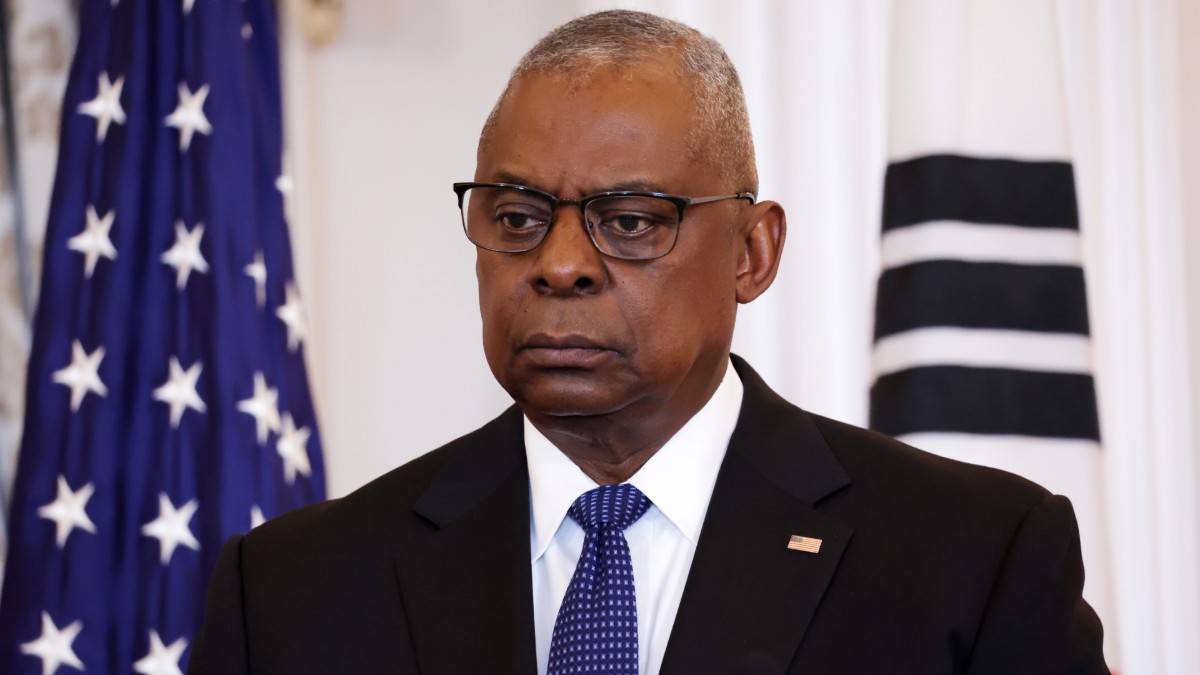‘Any military that turns away talent makes itself weaker’: Defense Secretary Lloyd Austin defends women in combat as Pete Hegseth threatens to remove them

Defense Secretary Lloyd Austin defends women in combat as Donald Trump’s new Defense Secretary nominee, Pete Hegseth, threatens to remove them.
If confirmed by the Senate, Hegseth will replace Austin as the Secretary of Defense when Trump enters office. Hegseth has raised some of the most red flags of all Trump’s cabinet picks. He is far less experienced than Austin, who boasts a military career spanning 41 years, was awarded a Silver Star, and served multiple leadership roles, including as CENTCOM’s commander. In contrast, Hegseth is a Fox News host who admitted to having five affairs during his first marriage, was accused of sexual assault, allegedly has a drinking problem, and boasts a military career that is quite average compared to Austin’s. Another significant difference between them is how they talk about women in the military. Hegseth has torn down women serving in combat and called for their removal, while Austin has praised women in the military and spoken about the women he served alongside with respect and admiration.
Lloyd Austin destroys Pete Hegseth’s women in combat stance
Recently, Austin delivered a speech to West Point cadets, effectively destroying Hegseth’s anti-women in combat argument. Hegseth wants to get rid of women in combat zones, but the only argument he has offered to support this desire is simply that he personally believes women, despite meeting the same standards as men and showing the same bravery as men, are still unequal to men in the military.
Austin didn’t mention Hegseth by name, but his poignant speech appeared to be aimed at his comments. He mentioned that the military doesn’t “have one warrior to spare.” On that note, he wanted to say “just a word about the women of the United States military.” Instead of just stating his opinion on women, he provided an anecdote to demonstrate the reality of women in combat. He explained, “In 2003, I was the assistant division commander for maneuver during the march on Baghdad.” Austin knew his duties required him to be at the “front” of the battlefield. As a result, he pulled his team together, which included several “extraordinary women,” and explained his plan and the risks that came with it, such as the possibility of being captured. He told them he would completely understand if they decided not to deploy further.
His statement was only met with confusion, as one woman responded, “Sir, what are you talking about?” They knew the dangers they were facing and didn’t have time to talk. Austin continued, “Those women didn’t flinch. They were facing the same dangers as the men. In fact, they were facing more. And in no uncertain terms, they were telling me to stop talking and get to the fight.” He continued, “And that is who the women of the United States military are.” Austin reiterated that in all of his decades-long career, the women he saw on the battlefield were accomplished, capable, brave, and “deliver the same excellence as their male counterparts.” He concluded, “Any military that turns away talent makes itself weaker.”
Austin speaks like a true leader. He bases his analysis of women in combat on facts and what he has seen with his own eyes on the battlefield rather than just speaking based on his personal political opinions and attitude toward women. Instead of complaining about wokeness and things he doesn’t like, he’s willing to make America’s military better by accepting everyone willing to serve bravely. Women in the military deserve to be applauded for their service and given the same opportunities as men. Hegseth is willing to let his personal feelings about women make him downsize and weaken the entire military of the United States, while Austin is willing to strengthen the military by accepting brave and capable women.
Have a tip we should know? tips@themarysue.com